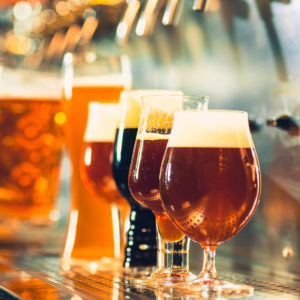The Senate recently struck a symbolic blow to the trade war that has broken out between the United States and the rest of the world — deciding that Congress should have a role in the decision-making process over tariffs. Although the progress is minor, it is welcomed.
If continued, the tariffs — both initial and retaliatory — will deliver serious economic fallout to many U.S. industries, notably affecting American brewed beer and distilled spirits. This sector is already under fire on multiple fronts and the new threat of tariffs will only add to the pile-on.
Take for example recent efforts to lower the blood-alcohol arrest level for driving from the nationally recognized 0.08 to 0.05 BAC — a threshold that can be reached after consuming little more than a single drink, the negligible impairment of which is significantly lower than talking on a hands-free cell phone while driving.
The move will discourage sales at bars and restaurants while penalizing moderate and responsible drinkers with a DWI who simply want to enjoy a drink over dinner. Although the policy has been adopted in only one state, and despite the fact that even Mothers Against Drunk Driving isn’t supporting it, momentum for 0.05 laws are growing around the country.
Other assaults are more subtle and slow moving. For decades, it was broadly understood that the moderate consumption of alcohol is part of a healthy lifestyle — being associated with a lower risk of heart disease, stroke, diabetes, dementia and overall mortality. However, a new push led by activist researchers and encouraged by click-hungry reporters claims otherwise — inferring that as little as one drink a day can contribute to major health problems.
And now, the trade war is threatening alcohol producers, sellers and consumers from another angle.
Beer producers were among the first to be affected in the trade war saga. The 10 percent tariff on aluminum is driving up the price of every aluminum can and bottle filled by domestic brewers. And when the industry handles 36 billion of them annually, the extra costs rack up quickly and can negatively affect the 2.2 million jobs associated with the industry.
The effect on American distilled spirits is no less distressing. While distillers may not be the direct target of U.S. imposed tariffs, they are the victim of retaliatory tariffs from foreign governments — which puts the industry’s $1.64 billion worth of exports at risk.
Unfortunately, these effects account for only a fraction of the consequences that will culminate as a result of a continued trade war. Because as we learn from basic economics, tariffs — which are essentially a tax — always roll downhill.
While the financial burden is first applied to the brewers and distillers — by either increased production costs or weaker overseas sales — the extra expense will trickle down the supply chain, afflicting restaurants,
The outcome will be far reaching.
The restaurant industry is a good example because a significant part of their revenue is generated from alcohol sales. These establishments are already feeling the squeeze due to new home delivery services like Uber Eats and are depending on specialty drinks to entice patrons. Rising drink prices will push that goal further out of reach.
American beer and distilled spirits — as well as the restaurants that serve it and the consumers that buy it — are already fighting an uphill battle. Do we really need to continue a trade war that further undermines those who want to enjoy a glass of their favorite beer or spirit?

